Nurse Resume: Effective Travel Nurse and Student Nurse Resume Templates
Published on September 1st, 2024
The nursing profession offers a wide range of career opportunities, from seasoned travel nurses working across the country to student nurses just beginning their healthcare journey. With such diversity in roles and experiences, having a well-crafted resume tailored to your specific nursing path is essential. For travel nurses, a resume that highlights adaptability and specialization is key, while student nurses need to emphasize education and clinical training.
This guide will walk you through the process of creating an effective resume for both categories, ensuring that you stand out to potential employers.
The Importance of a Well-Crafted Resume for Nurses
Are you looking for jobs near me? Then in this highly competitive healthcare environment, your resume is more than just a list of past jobs — it’s your first chance to make an impression on hiring managers. A resume that communicates your skills, experience, and certifications is critical, whether you’re a travel nurse looking for your next assignment or a student nurse applying for your first position. This article will provide detailed advice for crafting resumes that speak to the specific needs of both travel nurses and student nurses.
Key Responsibilities of a Nurse
Before diving into resume specifics, it’s important to understand the core responsibilities that all nurses share. Nurses are integral to patient care, from assessing patient health to administering medication and providing emotional support. Depending on the specialty, nurses may also be responsible for more advanced care, including managing life-saving equipment or assisting with surgery. Whether you are a travel nurse or a student nurse, your resume should clearly convey your ability to handle these responsibilities with professionalism and skill.
Templates of Nurse
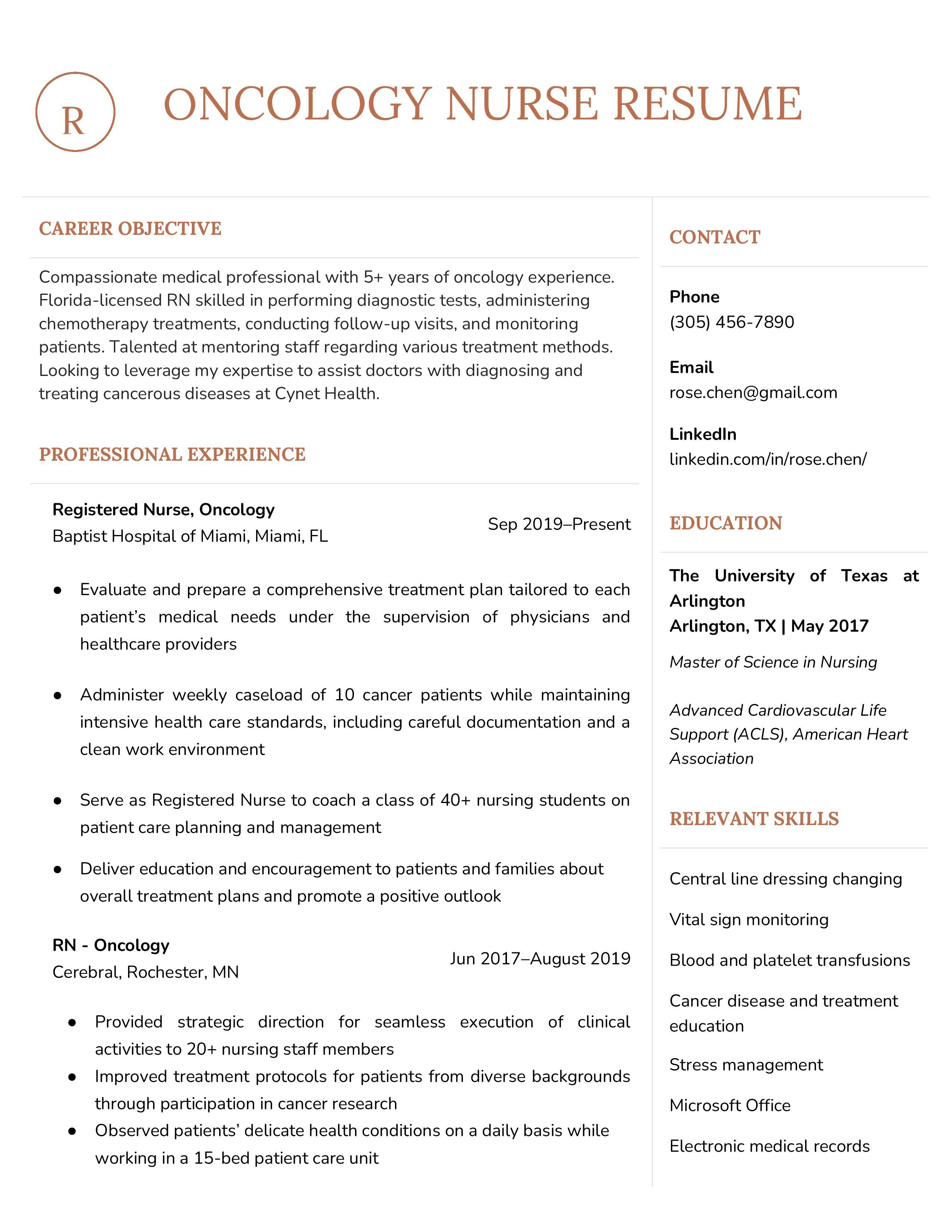
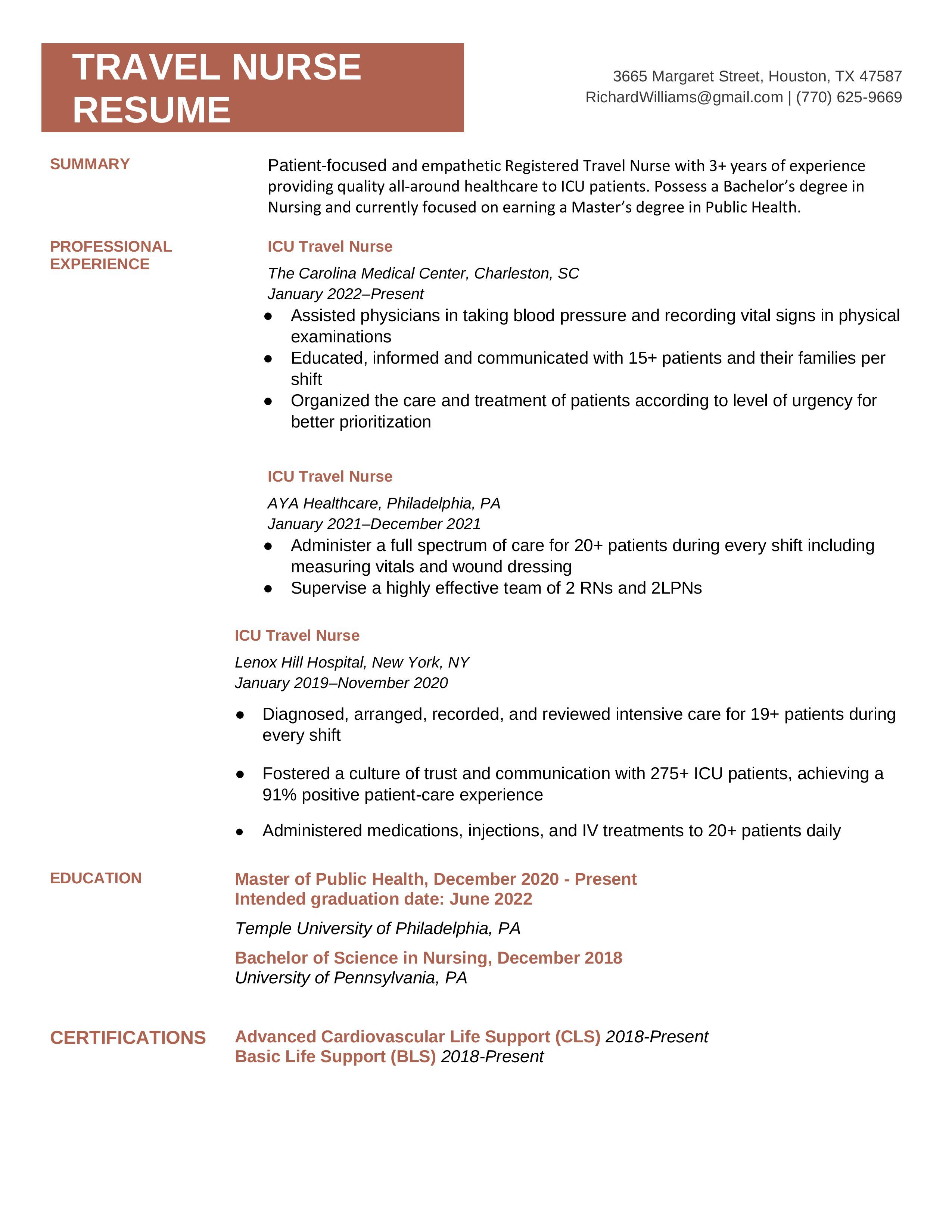
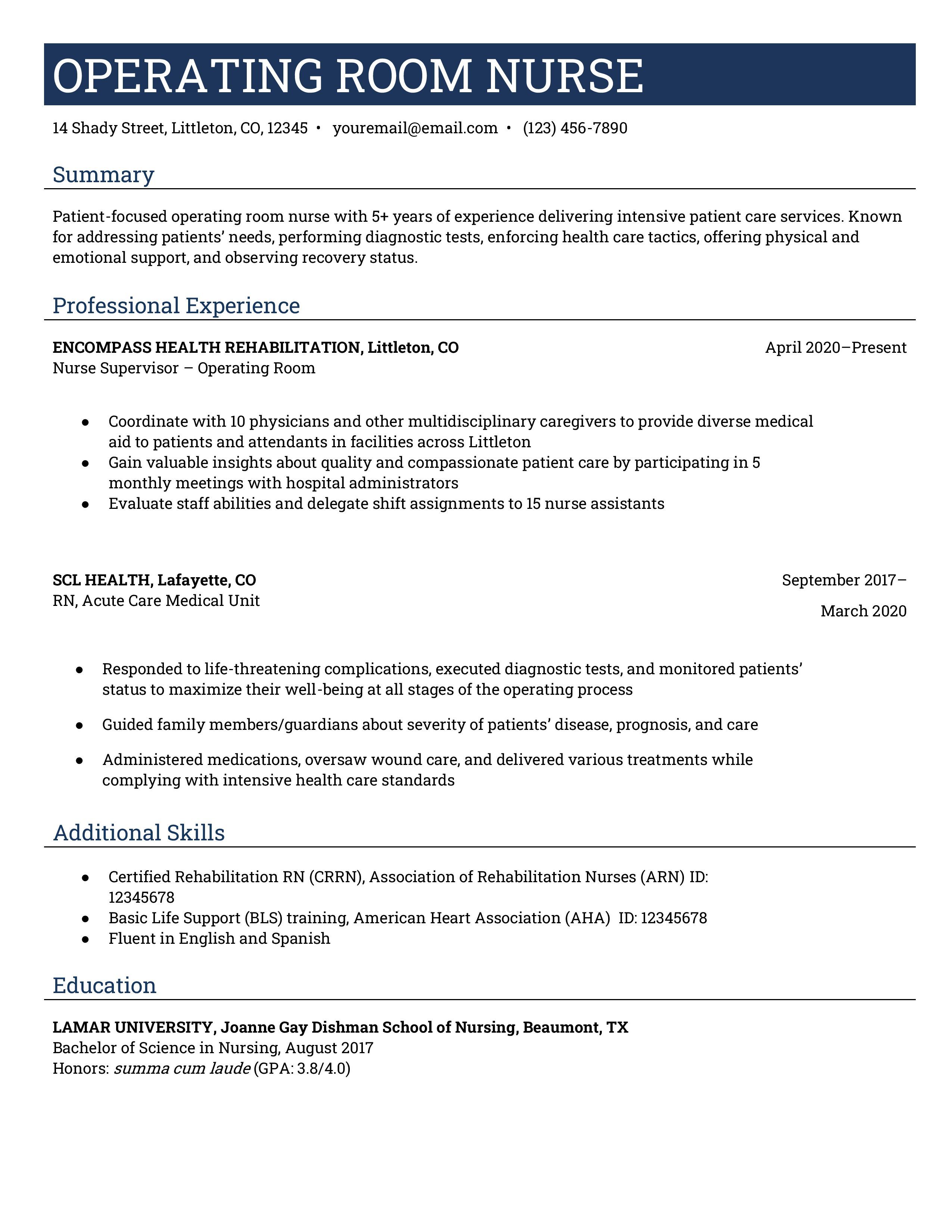
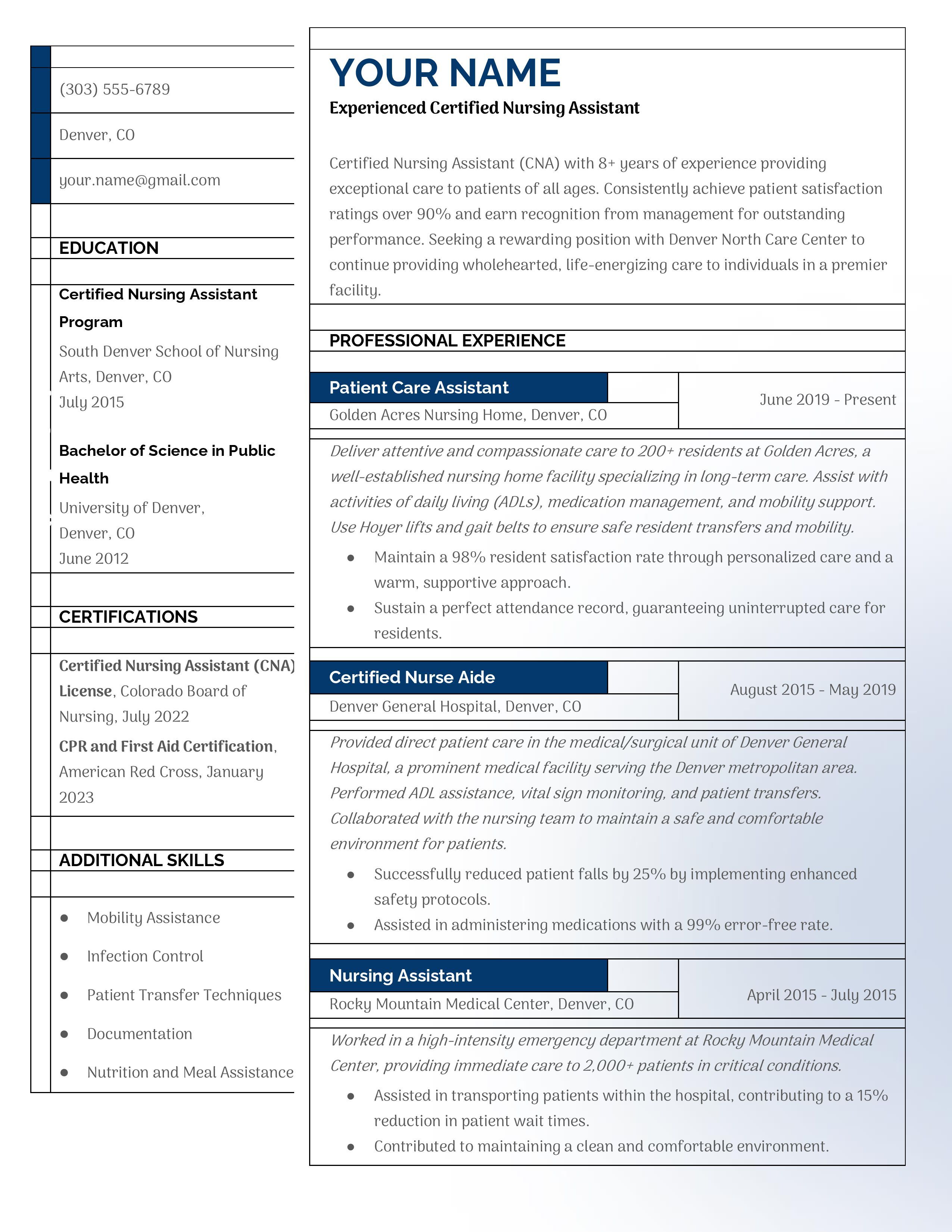
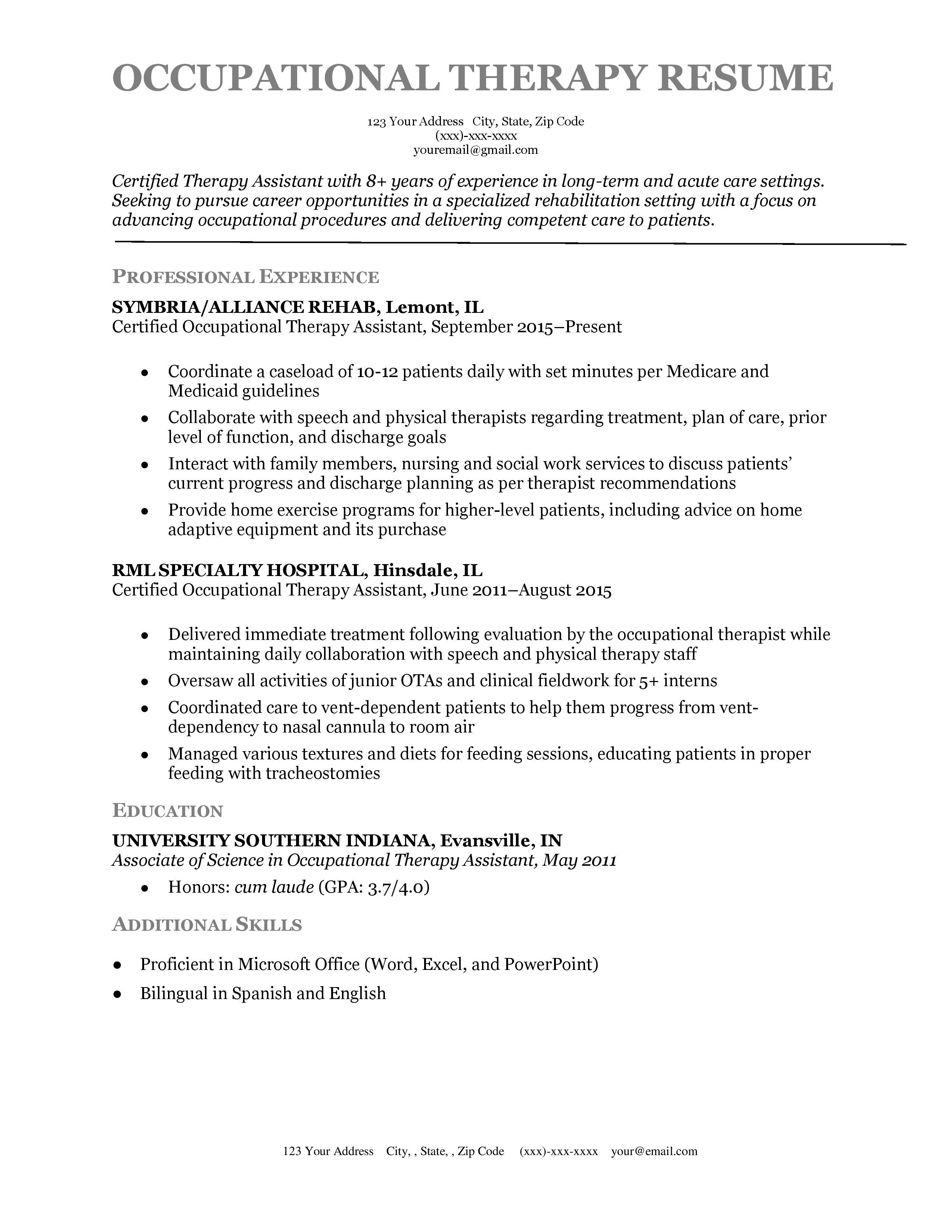
What are the things to consider while writing Nurse Resume Templates?
Travel Nurse Resume: Key Components
A travel nurse's resume needs to demonstrate more than just clinical skills. Travel nurses work in diverse environments and must adapt quickly to new settings, often with minimal orientation. Here's how to make your travel nurse resume stand out:
1. Highlight Relevant Experience and Skills
- Emphasize adaptability and flexibility: As a travel nurse, you're expected to hit the ground running in different healthcare facilities. Your resume should clearly show how you’ve successfully adapted to new teams, technologies, and patient populations.
- Showcase clinical skills and specialties: Whether your expertise is in critical care, emergency room (ER), or pediatrics, make sure to list the departments you've worked in and the skills you’ve mastered.
2. Importance of Certifications and Licenses
- List your state licenses and compact licenses: Depending on where you're applying, having multiple licenses can be a significant advantage. Ensure that your resume lists all the states in which you're licensed to work.
- Include relevant certifications: Certifications like Basic Life Support (BLS), Advanced Cardiovascular Life Support (ACLS), and others relevant to your specialty are essential to showcase. These demonstrate that you're fully qualified for the assignments you seek.
3. Tailor Your Resume for Specific Assignments
- Research potential employers: Tailor your resume for each job application by researching the healthcare facility or employer. Highlight your experiences that align with their needs.
- Customize the resume to match job descriptions: Adjust your resume to match the specific job description of each assignment. Emphasize the skills and experiences that align with the role, making it easier for hiring managers to see how you fit.
Student Nurse Resume: Essential Elements
As a student nurse, your resume will look different from that of a travel nurse. Since you may not have extensive work experience, your focus should be on your education and clinical training.
1. Education and Academic Achievements
- List nursing programs and degrees: Clearly outline the nursing programs you’ve completed or are currently enrolled in. Be sure to include the institution's name and dates of attendance.
- Highlight relevant coursework and academic projects: Even if you’re just starting, your coursework and academic projects are important. Highlight projects that show your ability to apply theoretical knowledge in practical settings.
2. Clinical Experience and Internships
- Detail clinical rotations and responsibilities: Provide a detailed list of your clinical rotations, specifying the departments in which you worked and your responsibilities. Whether you were in pediatrics, surgery, or mental health, these experiences helped showcase your hands-on skills.
- Emphasize skills gained during training: Highlight critical skills such as patient care, charting, medication administration, and teamwork that you developed during your clinical experiences.
3. Involvement in Extracurricular Activities and Organizations
- Showcase leadership roles and volunteer work: Student nurses often gain valuable experience through extracurricular activities. If you held leadership roles in student nursing associations or volunteered in healthcare settings, be sure to mention this.
- Include memberships in nursing associations: Joining professional organizations like the National Student Nurses Association (NSNA) demonstrates a commitment to the nursing field and helps set you apart from other candidates.
Common Mistakes to Avoid in Nursing Resumes
Creating an effective resume is not just about what you include — it’s also about avoiding common pitfalls. Here are some mistakes to watch out for:
1. Overloading with Irrelevant Information
While you may be tempted to include every job you've ever had, it's important to focus only on the experiences relevant to nursing. A cluttered resume can be hard to read and may distract from your most important qualifications.
2. Failing to Proofread for Errors
A single typo or grammatical mistake can leave a negative impression. Always proofread your resume carefully, or ask a colleague to review it before submitting it.
3. Using a Generic Format Without Customization
A one-size-fits-all approach won’t work for nursing resumes. Tailor your resume to the specific job and employer. This shows that you’ve put in the effort to match your qualifications to the job's requirements.
Conclusion
A well-crafted resume can open doors for travel nurses and student nurses alike. Whether you're pursuing new assignments as a travel nurse or applying for your first position as a student nurse, a tailored resume that highlights your skills, experience, and qualifications is essential. Take the time to customize your resume for each opportunity, ensuring that it reflects the unique aspects of your career. A strong, professional resume can be the key to unlocking new career opportunities and advancing in the nursing profession.
Authors

Soujanya Varada
As a technical content writer and social media strategist, Soujanya develops and manages strategies at HireQuotient. With strong technical background and years of experience in content management, she looks for opportunities to flourish in the digital space. Soujanya is also a dance fanatic and believes in spreading light!
Hire the best without stress
Ask us how
Never Miss The Updates
We cover all recruitment, talent analytics, L&D, DEI, pre-employment, candidate screening, and hiring tools. Join our force & subscribe now!
Stay On Top Of Everything In HR

